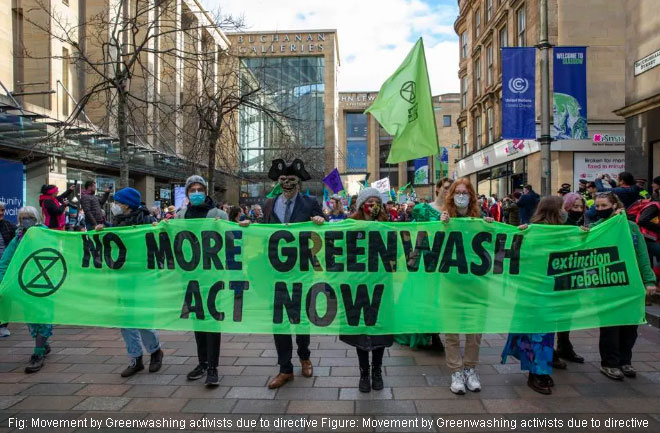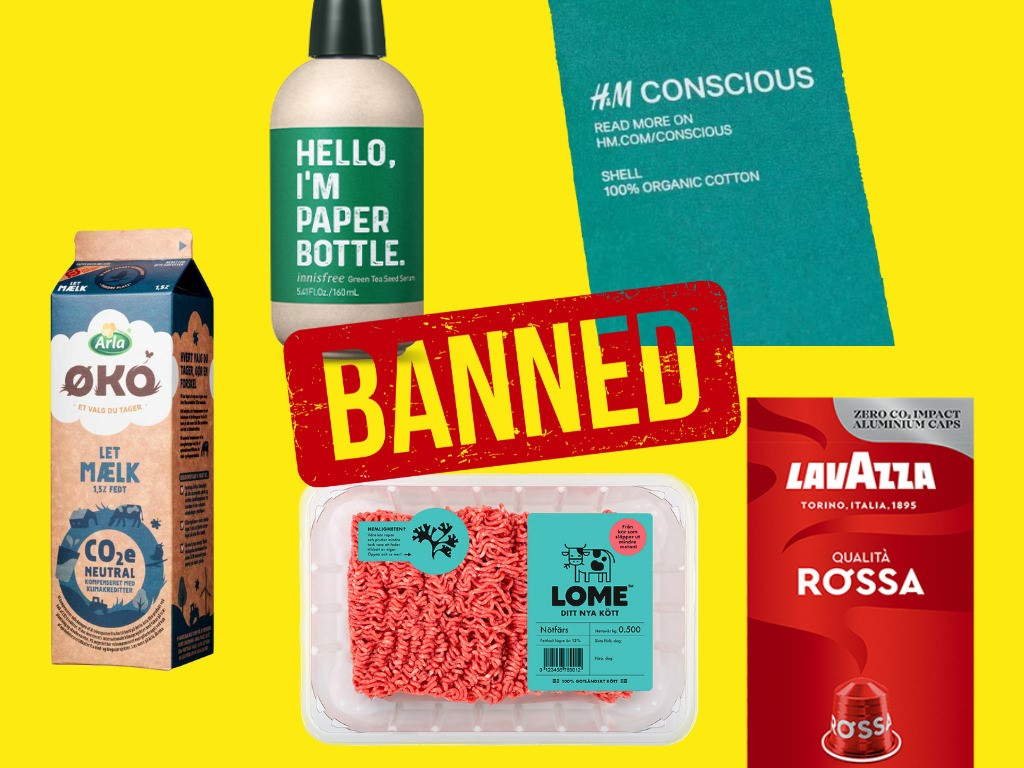
Category: SUSTAINABILITY
Country: Belgium
Region: Europe
By Homayra Anjumi Hoque
5th February, 2024 | 4 minutes read
Greenwashing, the practice of making misleading or unsubstantiated claims about the environmental benefits of products or services, is becoming a matter of concern in an era of climate crisis and consumer awareness. To protect consumers from false or misleading advertising and support companies that are truly committed to sustainability, the European Union has passed new legislation that will revolutionize the way environmental claims are made and verified.
The law, passed by the European Parliament on 17 January 2024, introduces strict standards and rules for the development and substantiation of environmental claims and regulates the use and management of sustainability labels. With an overwhelming majority of 593 votes in favor, 21 votes against and 14 abstentions, the Directive is an important step towards improving consumer protection and promoting more sustainable purchasing decisions. It bans the use of terms such as “climate neutral”, “climate positive” “environmentally friendly,” “natural,” “biodegradable,”or “eco”- will be prohibited unless substantiated with evidence, which have been widely criticized as lacking in effectiveness and transparency and also because of CO2 emissions offsetting schemes. This step will be commenced from the EU by 2026 as part of a crackdown on misleading environmental claims. The provision also regulates the use of sustainability labels, allowing only labels based on official certification systems or established by authorities. This measure aims to reduce confusion caused by the proliferation of such labels and ensure their credibility.
Key points from this provision:
● Generic environmental claims and other misleading product information will be outlawed.
● Only sustainability labels based on approved certification schemes or established by public authorities will be allowed.
● Guarantee information has to be more visible and a new guarantee extension label will be introduced.

Fig: EU’s Greenwashing ban for consumers’ green transition directive
Objectives of the law; Root for good
The EU said that while investments by companies in climate protection projects were welcome and could still be communicated, they could no longer fool people into believing a product was “good because the company planted trees somewhere”. It said this was a great success for the environment, the climate, and consumers.
Another important goal of the new law is to put more emphasis on product expiration dates for manufacturers and consumers. In the future, new and harmonious labels will be created to make warranty information more visible and to make products with extended warranties more visible.
Under the new directive, only sustainability labels using approved certification schemes will be allowed by the bloc. It comes amid widespread concern about the environmental impact of carbon offsetting schemes, which have often been used to justify labeling products “carbon neutral”, or imply that consumers can fly, buy new clothes or eat certain foods without making the climate crisis worse.
The directive comes after months of negotiations over how environmental claims will be regulated in the EU, with a deal reached in September that was approved by lawmakers on Wednesday. Member states now have two years to introduce the new rules.
Beginning of the end; Greenwashing era reaches to edge
The Directive on Empowering Consumers for the Green Transition, adopted by the European Parliament, finally adds common greenwashing tactics to the list of unfair commercial practices. More than 50% of claims must be extinguished or modified. As a result, EU consumers will soon see far fewer meaningless environmental claims, including the following prohibitions:
Claims that a product has a reduced or no impact on the environment based on the use of carbon offset credits, which are unconnected to actual emissions reduction. This is the end of climate-neutral flights and bananas – impossible claims that should never have been permitted.
Claims about future environmental performance without a realistic commitment by the company to achieve stated goals. Companies must communicate their plans and have them regularly reviewed by independent external experts.
General claims without explanation or evidence. No longer is it to be needed to just display the symbol “eco-friendly” or “100% eco-friendly” on billboards.
Sustainability labels without an appropriate and independent certification process – including labels created by companies for their products to give the false impression that claims are verified.
One down one to go; Green Claims directive fills the gap
While the Consumer Rights Directive sends a strong signal that greenwashing is no longer tolerated in the EU, the real measure of its success is enforcement, and complementary legislation such as the Green Claims Directive, is still needed.
“This law will change the everyday lives of all Europeans! We will step away from throwaway culture, make marketing more transparent and fight premature obsolescence of goods. People will be able to choose products that are more durable, repairable, and sustainable thanks to reliable labels and advertisements. Most importantly, companies can no longer trick people by saying that plastic bottles are good because the company planted trees somewhere – or say that something is sustainable without explaining how. This is a big win for all of us!”
Parliament’s rapporteur Biljana Borzan (S&D, HR)
The Consumer Rights Directive requires companies to provide evidence, but does not require them to verify environmental claims before making them (as proposed in the Green Claims Directive). This would have been an important safety measure, so it is a shame that it is not specified in this law.
Instead, the burden will be placed on government agencies, which must continue to invest more resources in market surveillance and fine companies that make misleading environmental claims. This could have been only avoided if the obligation had been shifted to third-party verification.
In practice, claims with no evidence are easily identified and removed by authorities, while claims with some justification (true or misleading) are less likely to be investigated at all, leading to more complex forms of greenwashing. Without a complementary Green Claims Directive, the Consumer Empowerment Act may fail to achieve its goals. There is little time left to complete several important documents, including the Green Claims Directive, before his EU elections in June 2024. The law establishes common rules for effective communication about the environmental impact of products, introduces a pre-approval process before claims go to market, strengthens ecolabel rules, and introduces stricter regulations against greenwashing.
Finalizing just one of these two relevant directives before the EU elections would be a missed opportunity to eradicate greenwashing once and for all. So, the European Parliament & Council have to agree on one position definitely.
“To achieve this, a number of problematic marketing habits related to greenwashing and the early obsolescence of goods will be added to the EU list of banned commercial practices,” the parliament said in a statement.
Courtesy: texspacetoday.com
Copyrights © 2025 GLOBAL TEXTILE SOURCE. All rights reserved.